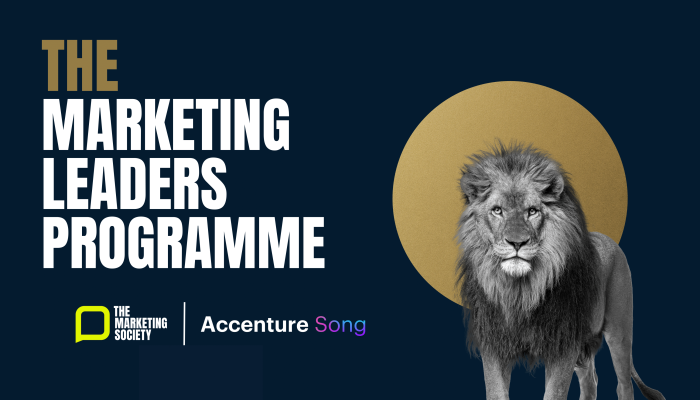Whether you speak to a retail bank, private bank, asset management firm or insurance provider, they will all readily admit that their industry is struggling to maintain relevance with customers. This, they will tell you, is because theirs is a ‘low involvement’ category that customers don’t fully trust, and one that has been commoditised by price wars. But they will also tell you that their brand is doing just fine – relatively speaking – that awareness is high, perceptions are strong amongst existing customers, churn is manageable, and customer satisfaction is nothing to be worried about.
Well, they are deluding themselves!
Customer satisfaction is a tricky metric, because whilst it should be an indicator of brand health, it is all too easily manipulated. I once received an email from a plucky mortgage advisor reminding me to ‘give them a high rating’. Whilst, other metrics like awareness, brand perceptions, net promoter score and even churn don’t tell the whole story because, quite simply, there are few significant alternatives. For example, in banking there’s likely to be little differentiation no matter who you bank with. So why bother complaining or moving. Or in the case of insurance, people have been trained by the industry to switch every year in order to keep premiums down – and they’re happy to do so because they know that one insurer is the same as the other.
In fact, Prophet’s Brand Relevance Index® backs this up, showing that:
Far from being ‘ok’, the state of the financial services industry is in dire straits.
In the UK, not one retail bank brand made the list of the top 50 most relevant brands. Not one. First Direct, the much-lauded challenger bank, languishes down in #214. And last year wasn’t much better with only Nationwide managing to break into the top 50. In fact, the big four UK retail bank brands barely made the top 150. For insurers, the picture from that category is even more depressing. Clearly Direct Line’s ‘Fixer’ campaign hasn’t worked to mend the relationship with its customers, sitting gloomily at #209. In other words, despite being household names with huge awareness and a combined marketing spend of over £2 billion, banks and insurers are no longer seen to be anywhere near as relevant as newcomers like Spotify, WhatsApp, PayPal or Just Eat.

What is probably more shocking, is that most people in the industry that we’ve spoken to aren’t surprised or alarmed by this news. Shrugging their shoulders and putting it down to inevitability, because of their role in the financial crisis, because regulatory pressure meant they hadn’t focused on the customer in recent years, and because they were a symbol of today’s general malaise with capitalism.
But what they fail to realise is that brand ‘relevance’ isn’t the same thing as brand ‘reputation’.
Relevance is powered by a far broader set of drivers – things like whether the brand meets an important need in customer’s lives or whether it makes things simpler; whether it pushes the status quo or inspires them. And the research shows that once again financial services perform miserably against all of these attributes.
Ultimately, customers are fed up with their banks and insurance providers trying to flog products and services to them that they don’t want. They’re frustrated with the red tape and bureaucracy, they don’t believe they have their interests at heart, and their experience is anything but easy compared to what they now get from the likes of Google or Uber. But because there is little other choice, customers just put up with it.
By contrast, brands in the top 50 of the Index have found a way to become more integral in the fabric of our lives.
Netflix can anticipate our needs and offer more tailored products; Amazon has redefined what customer experience should be; and PayPal works seamlessly to remove the friction from the payment process.
But this is all about to change in 2018 on the back of the UK Open Banking directive and PSD2. By requiring banks to share customer data via API’s, the banking industry will become more of an open platform that new fin-tech entrants can ‘plug’ into so they too can offer their products and services directly to the banks’ customers. Think of this as ‘un-bundling’ banking. By making it more modular and layered customers should have a broader choice of companies to deal with, with more specialised offerings available that can be simply bolted on top of their basic banking package. And whilst the directive doesn’t directly implicate the insurance industry, the carryover impact is inevitable.
![]()
To be sure, this will not be an overnight revolution – it’s likely to take a good two to three years before we see major shifts in market share. For example, peer-to-peer lending, which offers significantly better borrowing rates than any retail bank, has been around for almost 10 years and it’s still a very niche offering. But think about it, only five years ago Uber didn’t exist in London… and today it’s hard to imagine life without it.
Retail banking and insurance brands have always been household names – think of Barclays, Natwest, Santander, Lloyds or Aviva, AXA, Zurich and Direct Line. All high-street brands that everyone knew and respected, because a world without them was unimaginable. But the confluence of consumer disillusionment, regulatory change and technological disruption means the future of these brands is about to change for good.
To be clear, they aren’t going to disappear.
But their direct relationship with customers will need to evolve before the new kids on the block insert themselves between them. What they need to do is redefine the value they offer clients and find a way to make themselves relevant again in customers’ day to day lives. Brands should be moving fast – if they aren’t already – instead of waiting to see where their competitors go. Open banking is a game-changer set to unlock the door to a customer revolution and whole new era of banking as we know it.
By Greg Handrick, partner, Prophet
About Prophet
Prophet is a consultancy that helps clients find better ways to grow by focusing on three important areas: creating relevant brand and customer experiences, driving accelerated growth strategies and leveraging digital as a transformative force in their business. We operate differently than other consultancies, blending insight, strategy and creativity with an optimistic yet pragmatic approach. We have partnered with some of the world’s most successful companies, including Electrolux, T-Mobile, UBS and GE. With ten global offices and more than 350 experts in marketing, innovation, digital and design, we are able to bring together the right people with the right experience to solve our clients’ business challenges. Prophet.com



